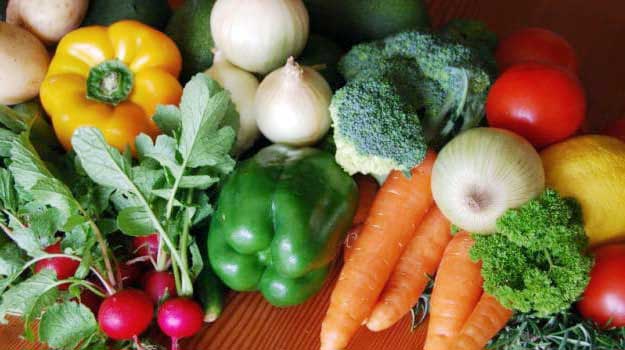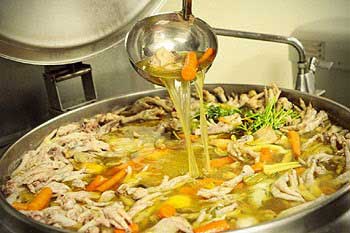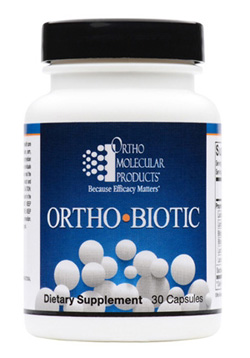What Is Irritable Bowel Syndrome? What Are the Symptoms?
Irritable Bowel Syndrome Symptoms
Dietary Tips for Healing from IBS
What Is Irritable Bowel Syndrome?
Irritable Bowel Syndrome (IBS), a functional bowel disorder that can cause pain and other symptoms, is the most common gastrointestinal disorder in the US. It is often confused with Inflammatory Bowel Disease (IBD), which is a more severe autoimmune disease. Consult with your doctor to determine whether you may have IBS.
It is estimated that approximately 10% of Americans are living with Irritable Bowel Syndrome. The pathogenesis (origin) of this disorder may involve biological, psychiatric, and social factors, thus studies show that there are many different types of treatments which may work for different people.

Irritable Bowel Syndrome Symptoms
Common physical symptoms of IBS include frequent:
- abdominal discomfort or pain
- spastic colon
- gas
- bloating
- diarrhea
- constipation
Additionally, studies have shown a relationship between IBS and depression, anxiety, and other emotional challenges.
How Home Enemas Can Help Heal IBS
Kristina Amelong, CCT, CNC discusses irritable bowel syndrome, its potential origins, common symptoms, and natural home remedies. Recommended treatments include dietary changes, taking probiotic supplements, maintaining high vitamin D levels, improving your emotional well-being, and regularly doing the 3-step therapeutic enema series colon cleansing protocol.
The Best IBS Diet
Diet is one of the most important ways to treat IBS. Cutting gluten, pasteurized dairy, and sugar from your diet may be enough to alleviate your IBS symptoms.
Additional Dietary Tips for Healing from IBS
Eat Organically
Pesticides such as glycophosphate are known to alter the balance between pathogens and beneficial biota in the gut. Such imbalances can be a main cause of IBS in many individuals. Learn More
Small Meals
Eat a small meal every 2 to 4 hours. This means that you will be eating 5 to 8 meals per day.

Non-Starchy Vegetables
Eat non-starchy vegetables 1 to 4 times daily. Organic (pesticide-free) vegetables are best. Non-starchy vegetables include raw sauerkraut, broccoli, celery, peppers, tomatoes, zucchini, onions, spinach, salad greens, kale, spaghetti squash, cauliflower, bok choy, collard greens, and more.
Protein
Eat 5 to 25 grams of protein every 2 to 4 hours. Proteins may include non-commercial, grass-fed meat such as beef, buffalo, ostrich, elk, raw dairy products, safe fish, organic chicken, organic turkey, or pasture-raised eggs. It is essential that you eat some animal protein each time you eat.
Healthy Fats
Eat healthy fats throughout the day. Healthy fats include, but are not limited to, grass-fed butter, grass-fed butter oil, grass-fed meat, ocean-caught fish, fish oils, coconut oil, grass-fed ghee, avocados, pasture-raised eggs, olive oil, nuts, and seeds. Eat nuts and seeds in small amounts only.
Foods with High Enzyme Content
Eat foods that have high enzyme content. These include raw dairy, raw or lightly cooked non-commercial meats, and lacto-fermented food and drinks such as yogurt, kefir, raw cultured vegetables, and kvass.

Probiotic-rich Foods
Boost healthy bacteria in your gut by avoiding highly processed foods and eating more probiotic-rich foods such as yogurt or fermented foods like kimchi.
Soups Made with Bone Broth
Eat soup that has been prepared using soup bones.
Healing Timeline
As a general rule, once you start healing your gut, you should start feeling improvements in a couple of weeks to a few months. That said, some will respond within days, and be fully healed in weeks. The key is to know that healing is possible, but how long it takes depends on the exact nature of the IBS and how severe the dysfunction.
Other Home Treatments for IBS
Doctors may prescribe drugs, such as antispasmodics or antidepressants, to treat IBS, but natural home treatments can be an effective alternative with fewer side effects.
- If your diet is lacking in probiotic-rich foods such as yogurt or fermented foods like kimchi, consider taking a probiotic supplement such as Ortho Biotic.

- Increasing your vitamin D intake may help, as studies have shown that low vitamin D levels are common among people who have IBS, and research has suggested that vitamin D supplements could ease IBS symptoms.
- Regularly cleaning your colon to ensure ongoing healthy bowel movements can help to alleviate IBS symptoms. A good place to start would be our recommended 3-step enema series.
- Address emotional challenges. The correlation between depression or other emotional stressors and IBS is one reason that antidepressants are frequently prescribed for those with IBS. IBS can lead to depression and anxiety, but depression and anxiety can also in turn make IBS worse. Seeking out psychiatric counseling or therapy may help you heal from IBS.
Pain Management
The power of the human brain is incredible, and still not fully known. Wide-ranging studies in the past 40+ years have focused on the benefits of mindfulness meditation not only for mental health but also for managing chronic or persistent physical pain.
▶︎ Mindfulness and Persistent Pain: Learn More
Summary
IBS symptoms can have a serious impact on your quality of life, but there are potentially many different paths you can take to heal from IBS. Making dietary changes, seeking out emotional support, and improving your gut health are some of the most important steps to take to treat this common disorder.
▶︎ Read about My Own Irritable Bowel Syndrome (IBS) Experience
DISCLAIMER: The material on this page presented for informational purposes only and is not a substitute for medical advice, diagnosis, or prescribing from a licensed healthcare professional. Consult with your doctor before altering or discontinuing any current medications, treatment, or care, or starting any diet, exercise, cleansing, or supplementation program, or if you have or suspect you might have a health condition that requires medical attention.
By Kristina Amelong, CCT, CNC
I-ACT-Certified Colon Hydrotherapist
Certified Nutritional Consultant